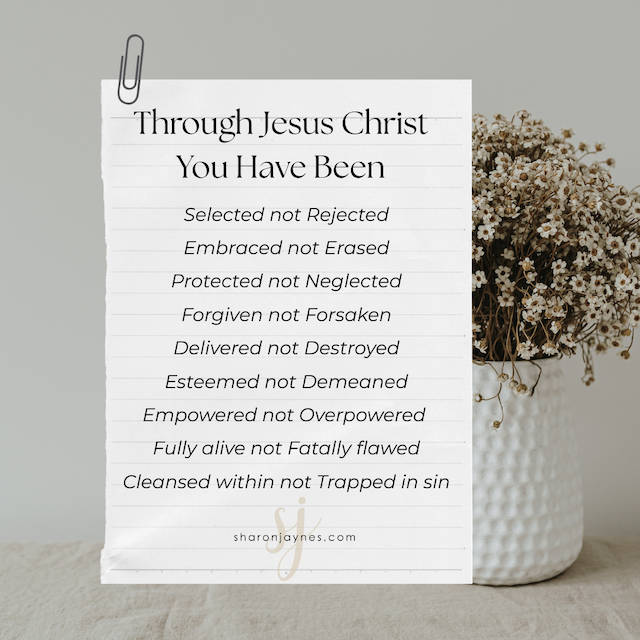Don't Strke the Rock! Learning About Consequences from Moses

Take the staff, and assemble the congregation, you and Aaron your brother, and tell the rock before their eyes to yield its water. So you shall bring water out of the rock for them…
And Moses lifted up his hand and struck the rock with his staff twice, and water came out abundantly, and the congregation drank, and their livestock. And the Lord said to Moses and Aaron, “Because you did not believe in me, to uphold me as holy in the eyes of the people of Israel, therefore you shall not bring this assembly into the land that I have given them.
Numbers 20:8, 11-12
Too Extreme?
Do you ever wonder at how God doles out discipline? Like when He stopped his meekest man Moses from entering the Promised Land simply because he struck a rock? How sometimes divine judgement seems too severe for the crime?
Moses had been told to strike a rock before (Ex. 17:1-7). And God himself had called his people rebels. I’ve written about these rebels before. So what’s so wrong with Moses doing the same?
After all, Psalm 106 tells us that the people sorely provoked Moses. They angered God too. And it went ill with Moses on their account, for they made his spirit bitter, and he spoke rashly with his lips.
Can we really blame Moses for lashing out?
Who Can Blame Moses?
Moses was God’s servant, His pick among all the men on earth to lead His people out of slavery. The “Man of God”- as Psalm 90 calls him- brought the Israelites out of Egypt through the Sea and for 40 years led them through the wilderness. You’d expect that Moses would be the one to bring them to the Promised Land.
He was not. Because God did blame Moses. He found fault in Moses and held him responsible. That’s what blame means.
Numbers 20:12 makes that clear: Because you did not believe in me, to uphold me as holy in the eyes of the people of Israel, therefore you shall not bring this assembly into the land that I have given them. The offense was serious enough in God’s eyes to ban Moses from leading Israel into Canaan Land.
But you’re in good company if you’ve struggled with this. Scholars have called it “one of the most difficult problems in the Old Testament.” Articles have been written to explain. Nineteenth-century pastor Alexander MacLaren asked “Was his momentary failure not far too severely punished?”
Like banning dessert for a year because a son stole a cookie. Or denying a week at camp for a minute of sassy talk.
But God said it and I believe it. Surely the Judge of the earth will do right.
And I still want to understand why.
Still a’fighting, and a’struggling?
So, this time on my way through Numbers, I paused to ponder why. I did some work- and had some fun- studying this out. Here’s what I found.
The first thing is really a side note. But I think it’s important because misunderstanding it trips many of us up.
We think that when we are converted our old demons will suddenly die. Then we lose heart and grow faint when they don’t. We forget that as long as there’s life, there’s a fight.
W. A. Criswell explains,
If you are hotheaded and tempestuous before you were saved, you’ll have that same tendency to burn up, to be hotheaded after you are saved…
Moses was a tempestuous man. He had a fiery and a burning spirit… Moses had it back there in the land of Egypt when he saw that Egyptian wronging that Israelite slave, and he killed him with his bare fists [Exodus 2:11-12]. And it comes out again here.
Now what happens to you when you’re saved is by the side of that burning spirit, God will put a spirit of grace and intercession by which you’re able to command and to control that volatile spirit. But you’ve still got it…And on the inside of our souls there goes civil war all the time, a’fighting, and a’struggling all the days of your life.
Now it comes out again here in Moses. Moses had…such high hopes for the [next generation] that when they fell back into that old way of their fathers, of murmuring, and finding fault with God- Moses was irritated. His spirit burned within him.
To us it seems so forgivable. To us it seems a harsh punishment for a weakness in Moses’ temperament.
I ask again. Why this divine decision?
Why Was God So Hard On Moses?
Because instead of doing what God said- “Speak to the rock, and water will gush out” [Numbers 20:8]-Moses dishonored God and disobeyed. “He lifted up his hand and struck the rock with his staff twice and water came out abundantly, and the congregation drank, and their livestock,” [Numbers 20:11].
Let’s don’t miss God’s mercy in his judgment: Despite the people’s grumbling, despite the disobedience of Moses, God gave water abundantly, to his rebel people and their animals.
Still came the consequence: “Because you did not believe in Me, to uphold me as holy in the eyes of the people of Israel, therefore you shall not bring this assembly into the land that I have given them,” [Numbers 20:12].
God barred Moses from entering the land because he did not believe the Lord or uphold the Lord as holy.
Disbelief and Disobedience: Partners in Crime
For the record, disbelief and disobedience go hand-in-hand. They did for the Israelites in the desert (see Hebrews 4:1-11) and they do for us today. “Take heed, brothers, lest there be you an evil, unbelieving heart, that turns away from the living God” [Hebrews 3:12].
Moses overtly disobeyed God [Numbers 20:8, 11]. That was the first sin.
His second sin was disbelief. “Because you did not believe in me,” God said. Just speaking to the rock wasn’t enough. Moses took matters into his own hands. He took his rod and struck twice. He didn’t believe that to speak to it was good enough.
But there’s one more layer that helps me understand why this particular sin, striking the rock twice, was so offensive to God.
God has great care for his types. (And that Rock was Christ.)
If I read one commentary on Numbers 20, I read a dozen, and every one brought out this point home:
When Moses struck the rock, he “broke the type.”
That might sound confusing. Let me explain.
Do you remember God’s direction to Moses? “See that you make every thing according to the pattern showed to you on the mount” [Exodus 25:9, 40; Hebrews 8:5; 9:23]. When the tabernacle was erected, did you hear the refrain?
It went like this, “Moses did as the LORD had commanded him.” The curtains and veil and lampstand and altar and basin and table- all were to be “just so,” as the God commanded. Because each of these things had a meaning that extended past itself.
They were types, or pictures of the person or the thing represented or prefigured. So when God barred his meekest man Moses from entering the Promised Land it wasn’t simply for striking a rock.
It was for striking the Rock. Because the rock was a type. The Rock was a picture of Christ.
Struck Only Once
God had told Moses to strike the Rock once before [Exodus 17:6]. But he was not to strike it again. Because the Rock represents God’s beloved Son, the Suffering Servant, our Jesus Christ.
Christ was struck once. He died once [Hebrews 9:27-28], never to die again. Scripture is so clear on this point.
Hebrews 9:28, “So Christ was offered once to bear the sins of many.”
1 Peter 3:18, “For Christ also suffered once for sins, the just for the unjust.”
Hebrews 10:10, “[W]e are sanctified through the offering of the body of Jesus Christ once for all.”
Hebrews 10:12, “But Christ offered for all time a single sacrifice for sins…”
Christ was struck for us once and for all. Our Prince of Glory died once on that wondrous cross. And that type is precious to God.
As Criswell said, “God has great care and great store for His types.”
Does God Still Discipline His Children?
Moses was disciplined for breaking faith, for his sin. But do believers still face consequences when we break faith?
Last week I sat around a table with several Christian ladies. When the subject of suffering came up, one quickly said, Well, I know suffering can’t be from God because God doesn’t punish his people.
Really?
If by punish she meant God’s holy wrath- his retribution, not restitution- she is definitely right.
But if she meant the Hebrews 12 corrective, fatherly discipline, “that for the moment all discipline seems painful rather than pleasant,” she was quite wrong.
Sin Has Consequences
John Piper’s description clarifies,
There is an infinite difference between the painful things that come into our lives and discipline us—designed for our good that we may share God’s holiness as loved children—and that terrible experience of pure retribution where we simply bear what we deserve and experience God’s justice forever.
I think the lady at my table did what many of us do.
She conflated- combined- two ideas into one that really are not the same. She joined the false idea- that God’s children will never suffer on earth because of their sin- with the glorious truth that God’s children will never- here or hereafter– never suffer the wrath of God.
Jesus took that- He was struck for that- once and for all. He bore our sins in His body on the tree (1 Peter 2:24). The record of our debt was nailed to the cross (Col. 2:15). There is now no condemnation for those who are in Christ Jesus (Romans 8:1). Hallelujah and amen!
But this incident with Moses shows us in heart-achingly, vivid color that this side of glory, sin still has consequences.
For Our Instruction, That We Might Have Hope
When Canaan was so close Moses could taste it- it’s gargantuan grapes and pomegranates and figs-Moses pled with God to reconsider. So he could just to cross the Jordan.
But he couldn’t.
And there’s something we are supposed to learn from that. Because whatever was written in former days was written for our instruction, that through endurance and the encouragement of the Scriptures we might have hope.
The Child’s Story Bible is succinct:
This was a bitter disappointment to Moses. He begged God to let him cross the river so that he, too, could see the longed-for promised land. God did not give Moses what he asked for. “Be satisfied with what I have decided,” God said to him. “Do not speak about this any more. Climb this mountain, and I will show you the land. Then you are to die here on this mountain. For you are not to cross the river.” (Deuteronomy 3:26)
Remember too, how David could not build the temple because he had shed so much blood? How his first child with Bathsheba died?
I think we’re supposed to learn from Moses-and David-to take heed lest we fall, because even for God’s blood-bought children, sin still has consequences in this life.
But even their examples, Scriptures says, are meant to give us hope.
Glory Awaits
The Good Lord does not forget His saints. There’s more to the Moses story.
W.A. Criswell again.
God had some better thing for [Moses], and He has some better thing for you, in God’s will, in God’s time, in God’s purpose. He may interdict it now, maybe take it away from us now, maybe the dregs of bitter disappointment we drink in the cup now, but some day, some time, some hour, somewhere, God has some better thing for us [Hebrews 11:40] as He had some better thing for Moses [Matthew 17:1-3].
Moses bore God’s discipline for his sin. Rather than speak to Rock he disbelieved and disobeyed and struck the Rock- representing Christ- not once but twice.
Though he was sorely provoked, Moses wasn’t given a pass. He died on the Mountain. He did not enter the Promised Land.
But when the-Rock-who-was-Christ walked this earth and was transfigured on the mountain, you do know who was granted the privilege of standing with him in His glory, don’t you?
Because some day, some time, some hour, somewhere...
You know.
And all drank the same spiritual drink. For they drank from the spiritual Rock that followed them, and the Rock was Christ.
Nevertheless, with most of them God was not pleased, for they were overthrown in the wilderness…
Now these things happened to them as an example, but they were written down for our instruction, on whom the end of the ages has come.
Therefore let anyone who thinks that he stands take heed lest he fall.
1 Corinthians 10:4-5, 11-12





